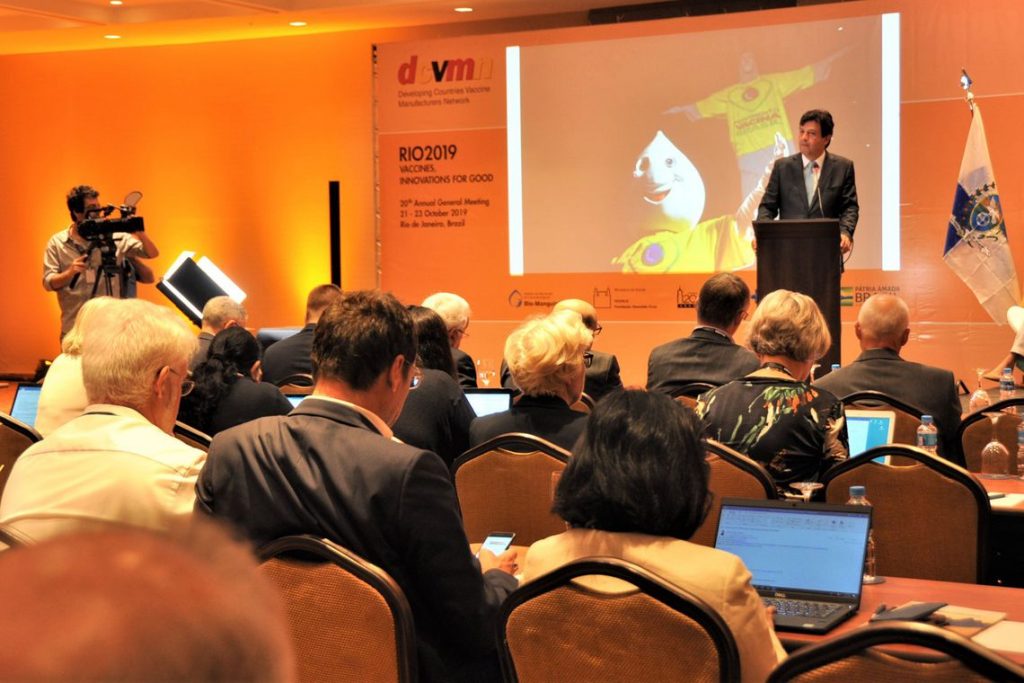Rio de Janeiro – Brazil’s minister of Health, Luiz Henrique Mandetta, announced this Tuesday (22) that the country will resume yellow fever vaccine exports, which were suspended in 2017 and 2018 to meet the domestic demand, when the country was going through outbreaks of the disease. Revenues to be grossed from the exports will be directed to Oswaldo Cruz Foundation (Fiocruz) to be reinvested in vaccine production.
According to the ministry, in 2019 and 2020 the Immunobiological Technology Institute (Bio-Manguinhos) at Fiocruz will provide 23 million vaccines to the Pan American Organization (OPAS) and the United Nations Children’s Fund (UNICEF).
The announcement was made during the 20th Annual Meeting of the Developing Countries Vaccine Manufacturers Network (DCVMN), which brings public and private manufactures together in Rio de Janeiro until tomorrow.
Outbreak
Fiocruz president Nísia Trindade said that, as soon as the disease outbreak started in Brazil, the vaccine production was intensified to meet the domestic demand. But now, from an international perspective, Fiocruz will be able to make the yellow fever vaccine available for the next year through the Pan American Health Organization and increase it in the next. “It’s already quite organized in our Bio-Manguinhos lab,” she assured.
Immunization
When talking at the meeting, the minister of Health warned about the low level of immunization, which he believes affects not just Brazil but developed countries as well such as the United States and France. This situation, the minister said, is one of the reasons for the return of diseases such as measles, which was already eradicated in several parts of the world.
Mandetta also pointed out the misinformation, either caused by fake news or the lack of memory of recent generations on the effects of the disease. “There’s a huge ignorance and lack of knowledge about the disease. In our generation, our mothers and grandmothers talked about vaccination campaigns as a national movement. The country stopped for the polio campaign in the late 80s. It was a mothers’ movement. Now, the mothers of the new generations believe it’s an outdated thing, diseases they’ve never heard of,” he said.
Translated by Guilherme Miranda




